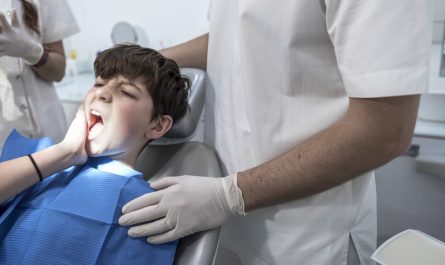Choosing the right drug rehab center is a crucial step toward recovery. It involves asking the right questions to ensure the program meets your needs. Critical inquiries can help clarify treatment modalities, staff qualifications, facility accreditations, and aftercare support. Understanding these elements can significantly impact your rehabilitation journey, providing a solid foundation for long-term sobriety and well-being.
It’s essential to ask the right questions to ensure you select a facility that meets your needs and offers the best chance for successful rehabilitation. Here are some key questions to consider before enrolling in a drug rehab center.
1. What Types of Treatment Programs Are Offered?
Understanding the types of treatment programs available is crucial. Inquire whether the center offers inpatient, outpatient, or a combination. Ask about the duration of each program and the specific therapies involved, such as cognitive-behavioral therapy, group therapy, or holistic treatments like yoga and meditation. For personalized guidance and tailored support, consider contacting QuickSilver Counseling, which specializes in various therapeutic approaches.
2. What Are the Credentials and Experience of the Staff?
The qualifications and experience of the staff can significantly impact the quality of care you receive. Ask about the credentials of the doctors, therapists, and support staff. Find out if they are licensed and have experience in treating addiction and any co-occurring mental health disorders.
3. What Is the Patient-to-Staff Ratio?
A lower patient-to-staff ratio can ensure that you receive more personalized attention and care. Ask about the number of patients each staff member is responsible for and how this ratio affects the level of individual care provided.
4. What Is the Facility’s Success Rate?
While no rehab center can guarantee success, understanding its success rates can provide insight into the effectiveness of its programs. Ask how it measures success and if it tracks its patients’ long-term sobriety. Be cautious of facilities claiming extremely high success rates without supporting data.
5. Are There Specialized Programs for Specific Addictions?
Different substances may require different treatment approaches. Inquire if the center offers specialized programs tailored to specific types of addiction, such as alcohol, opioids, or stimulants. For example, prescription drug rehab in New Jersey can provide specialized programs that address the unique challenges and triggers associated with prescription medication abuse, ensuring a more targeted and effective recovery process. Specialized programs can address the unique challenges and triggers associated with different substances.
6. What Is the Cost of Treatment, and What Are the Payment Options?
Understanding the cost of treatment and the available payment options is essential for effective planning and ensuring no hidden financial surprises down the line. Ask for a detailed breakdown of all costs, including additional fees for specific therapies, medications, or specialized services. It’s essential to be aware of the base cost and any potential extra charges that could arise during treatment. If needed, inquire about the extent of insurance coverage, the availability of payment plans, and any financial assistance programs offered by the rehab center.
7. What Aftercare and Support Services Are Provided?
Recovery doesn’t end when you leave the rehab center; in many ways, it’s just beginning. Aftercare and ongoing support are crucial for maintaining long-term sobriety and preventing relapse. Ask about the center’s comprehensive aftercare programs, such as follow-up counseling sessions, regular check-ins, and support groups. Determine whether they offer resources for sober living arrangements or transitional housing to help you adjust to daily life. Additionally, investigate whether they provide access to job placement services, educational opportunities, or family counseling, which can be instrumental in rebuilding a balanced and fulfilling life.
8. What Is the Daily Schedule Like?
Knowing what to expect regarding daily activities can help you prepare mentally and physically for the program. Whether you are considering New Jersey outpatient rehab or another facility, ask about the daily schedule, including therapy sessions, recreational activities, meal times, and downtime. Understanding the routine can help you adjust and make the most of your treatment.
9. How Are Co-Occurring Disorders Treated?
Many individuals with addiction also suffer from co-occurring mental health disorders, such as depression or anxiety. Addressing both addiction and mental health conditions simultaneously is crucial for effective treatment and long-term recovery. It’s important to ask if the center can diagnose and treat co-occurring disorders. Inquire about their methods for integrated treatment approaches that address both addiction and mental health issues, combining therapies such as cognitive-behavioral therapy, medication management, and holistic approaches. Integrated treatment programs that provide comprehensive and personalized care plans are often more effective in achieving sustained recovery.
10. What Is the Approach to Family Involvement?
Family support can be vital to recovery, offering emotional encouragement and a stable environment. Inquire about the center’s approach to involving family members in treatment, as their participation can significantly enhance the recovery process. Ask if they offer family therapy sessions, educational programs, or support groups to help family members understand the nature of addiction and learn how to support their loved one’s recovery effectively. Additionally, find out if the center provides resources and counseling for family members to address their emotional and psychological needs, ensuring they are well-prepared to contribute positively to their loved one’s ongoing recovery.
Final Thoughts
Selecting the proper drug rehab center requires careful consideration and thorough research. By asking these essential questions, you can gather the information needed to make an informed decision that best supports your journey to recovery. Ensure the facility you choose aligns with your needs, offers comprehensive care, and provides the support necessary for long-term sobriety.




